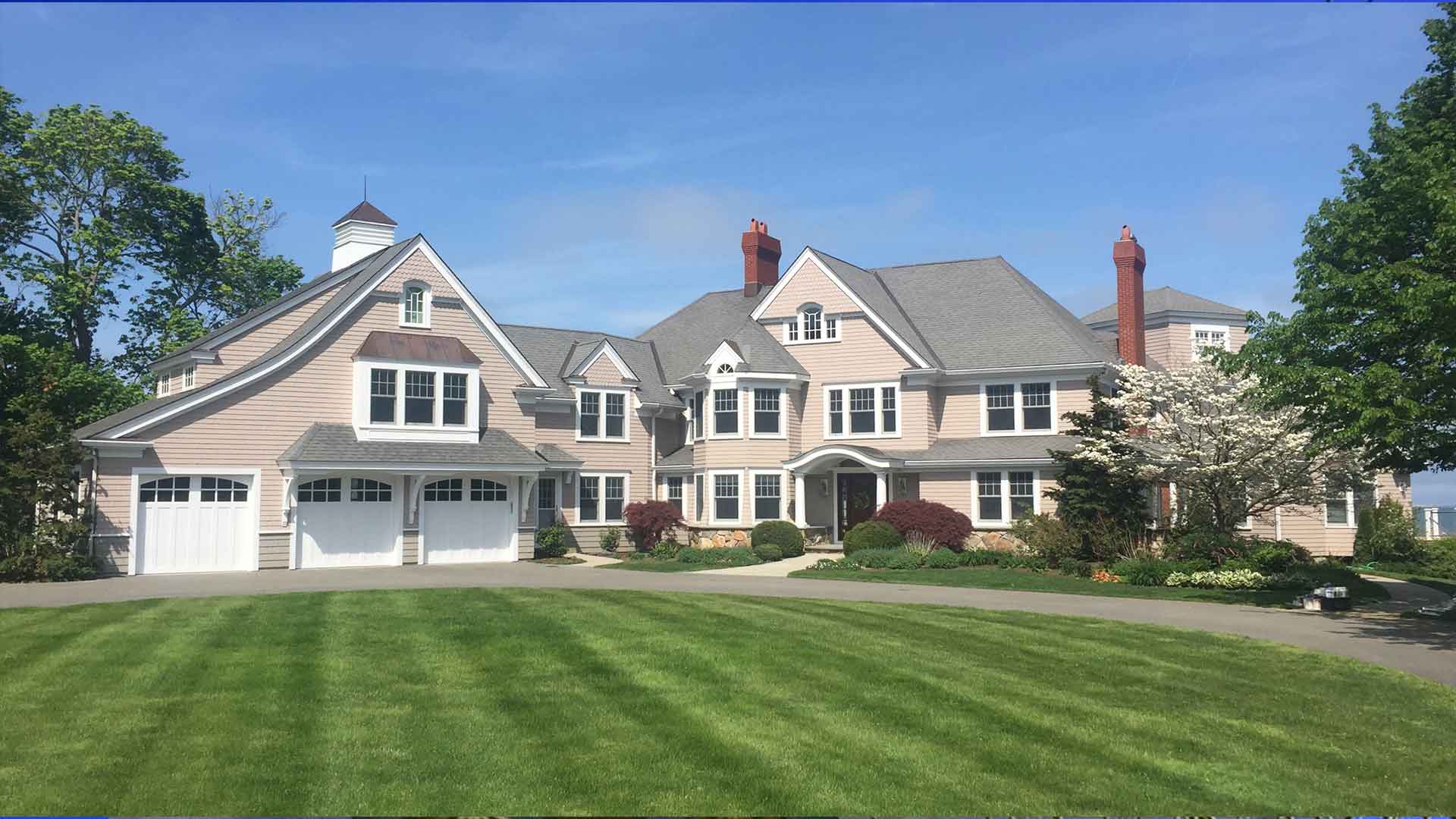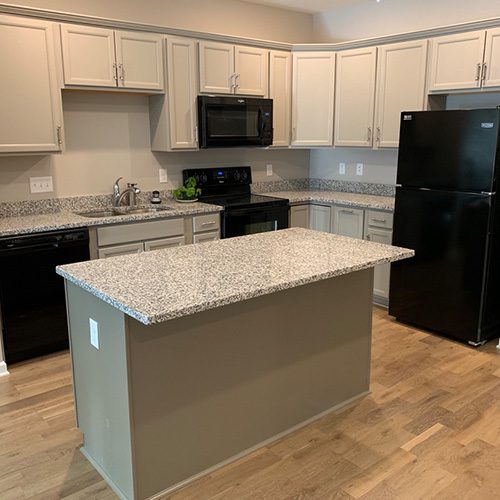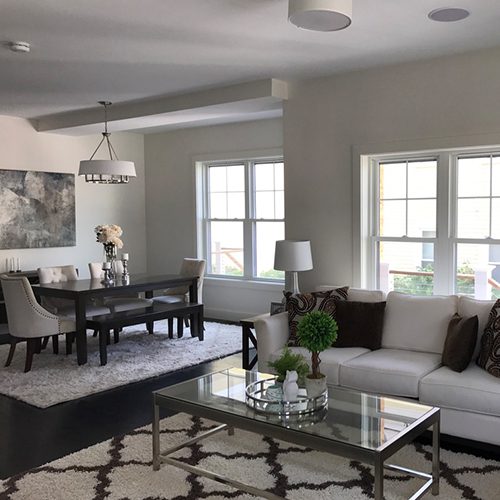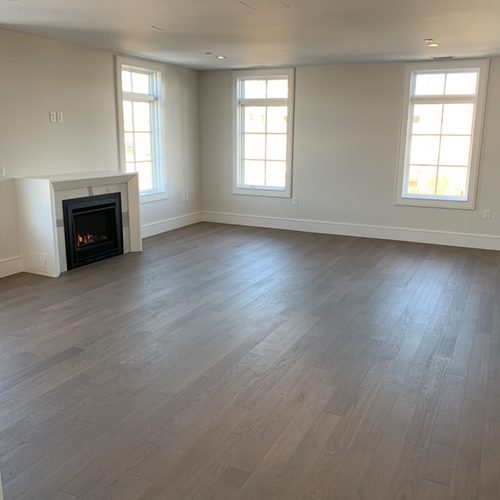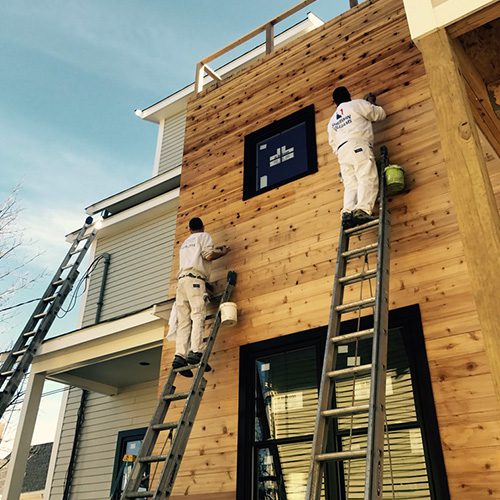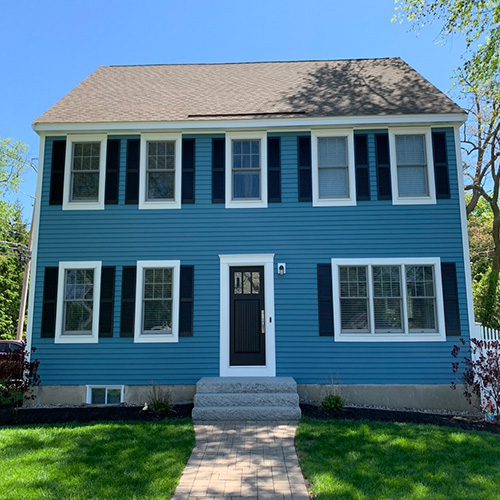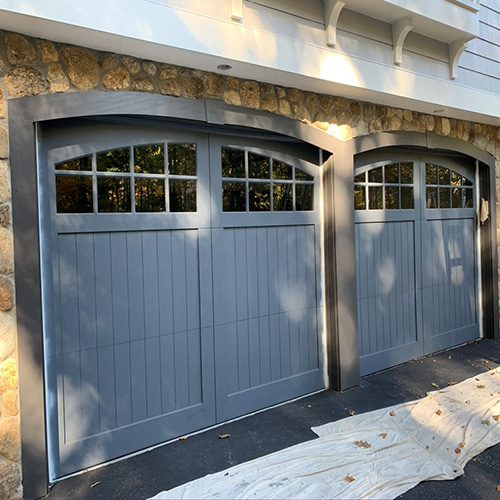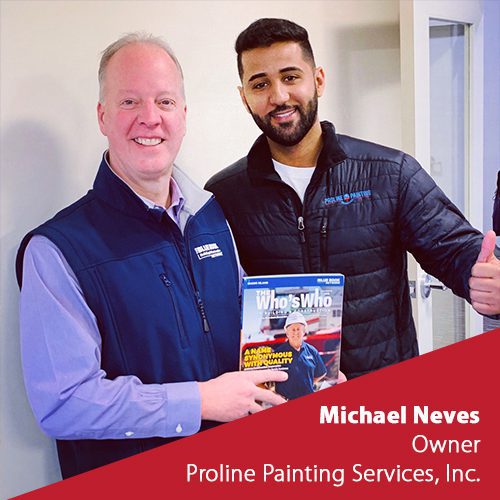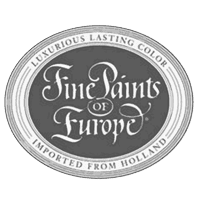Exterior House Painter
Chinatown MA
Looking for an Exterior House Painter in Chinatown, Massachusetts?
Are you a Homeowner? Business Owner? Property Manager? Or maybe someone just looking for more information on the best Chinatown MA exterior house painter?
You’re in the right place…
DO YOU HAVE THESE PROBLEMS:
• Paint Chipping?
• Time for a color change?
• New Home Or Apartment?
Proline Painting Services, a top-rated painter specializing in exterior house painting services, has helped thousands of Chinatown homeowners, business owners, property managers, and other individuals in the Greater Boston, MA area. After some research, we’re confident you’ll find us to be the right exterior house painting contractor to handle your exterior painting project.
Why Choose
Proline Painting Services Is The Best Exterior House Painter Chinatown MA?
In short…Because we have a reputation for quality work and being budget friendly. Our customer service is second to none. Our team is always responsive, courteous, friendly, and respectful.
At Proline Painting Services, we do it all! From conception to completion, we handle every aspect of your painting or restoration project. This integrated approach reduces project time and money by streamlining each phase of implementation and eliminating the delays that often plague sub-contracted projects.
With Proline Painting Services, you’ll receive:
- Quality workmanship that is guaranteed to last
- Work from licensed professionals who are honest and hardworking
- Dependable service that is completed on time and on budget
- Free estimates and a fully insured crew
To review the creativity of our work and the quality of our craftsmanship, simply take a look at our Photo Gallery. Our decades worth of painting projects speak for themselves! From custom commercial projects to house painting, and more — You can trust your project or business property to our team of experts.
Residential & Commercial
Full Service Painting Company
Kitchen Cabinet Refinishing
Chinatown MA
Click Here
Interior House Painter
Chinatown MA
Click Here
Chinatown
Painting Contractor
Click Here
What Are The Benefits of Using Professional House Painters?
When you paint the outside of your home yourself, you risk making mistakes. While a quality paint job increases your home’s curb appeal, a bad one does the opposite. You get these benefits when you hire professional exterior house painters:
Professional Results
A professional paint job adds value to your home and lasts longer than an amateur paint job. Professionals also save you time and money.
Color Advise
With so many exterior house paint colors, it can be hard to pick one. We have experience with painting all types of Massachusetts residences, and we can advise you on the best color and paint type for your budget.
Safety
Painting involves high surfaces and specialized equipment. Our team has the proper training and certifications for exterior painting services. We have everything we need to prevent damage and disruption.
Exterior House Painters Who Emphasizes Preparation for a Magnificent Finish
Prep work comes first in a quality painting project. Before we apply paint to your exterior surface, we:
- Clean the surface with power washing and scraping
- Check to see if the area needs sanding or patching
- Inspect the surface for rot, mold, or other issues
Our thorough process ensures beautiful and lasting results. We inspect the work area first, which may uncover hidden problems. In professional exterior painting services, we know that a solid start is the key to a fantastic finish.
When we complete the job, we check for flakes, debris, and chips. We also clean up the area and leave it the way we found it.
Exterior painting preparation helps everything go smoothly. We plan well and keep you informed so that you can have peace of mind.
What Makes Us Different?
FULLY INSURED
We’re fully insured and bonded to handle all requests.
budget Friendly
We're willing to discuss projects constrained by a budget.
Quick Service
We show up on time and finish ahead of schedule regularly.
Friendly Team
Our crew is pleasant and easy to talk to on the job site.
House Painting Tips
No matter the size of your house, painting it is a big undertaking. These exterior house painting tips will help you get the best result:
- Buy quality tools. While you want to save money, you don’t want a cheap-looking home. Invest in a few synthetic-bristle brushes with different edges. You should also buy a heavy-duty roller, paint cans, and a bucket.
- Watch the weather. If you paint in direct sunlight, the heat will dry your paint too fast. You also don’t want to paint when you have a risk of high winds or rain. Check the paint label to see the recommended environment.
- Check for lead. If you have an old home or building, you may want to get a lead test kit to avoid exposing yourself or others to lead paint.
- Clean the exterior. Dirt and grime will ruin your fresh paint. Use a cleaner that works on mildew or hire a professional power washer.
When you hire us for exterior painting services, we’ll take care of all of these items for you.
How to Choose Exterior House Paint Colors
Your interior colors typically reflect your style. With the outside of your home, you also have to keep in mind:
- Durability
- The colors of your patio or other accents
- Trim color
- Neighborhood
- Climate
When choosing exterior house paint colors, plan to invest in a premium brand that resists stains and weather. If you have brick or stone near your home, try picking one of their underlying tones. You can choose an opposing color instead of a complementary one—for example, a warm color to contrast with a cooler tone.
Try using an online tool that will recommend coordinating or matching colors. These tools help you visualize the finished look with different color combos.
Finally, buy several test paints. Make sure you test colors on different sides of your home to see them in various lightings. Once you see the colors on your home, you can make a better judgment on which one looks best.
Talk to an Expert
We understand that sometimes you just want to talk before scheduling a consultation. Our team will gladly answer any of your questions or help you with any of your concerns.
Call Mike now! — (617) 818-5763
Testimonials From Happy Customers
★★★★★
Top-Rated Painters
Focused On Quality Craftsmanship And Customer Service
Request A Free Quote Today!
We'd be happy to come evaluate your property, discuss your needs, and provide you with a competitive, no-obligation ESTIMATE.
Kitchen Cabinet Refinishing
Chinatown MA
Click Here
Interior House Painter
Chinatown MA
Click Here
Chinatown
Painting Contractor
Click Here
MAP OF Chinatown, MA
[rkfrt-map title=”Map of Chinatown” location=”Chinatown, MA” zoom=”13″ neighborhood=”true” activities=”true”]
Chinatown OVERVIEW
|
Chinatown
|
|
|---|---|
|
Neighborhood of Boston
|
|
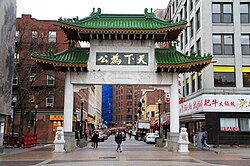
The paifang gate in 2013
|
|
| Country | United States |
| State | Massachusetts |
| County | Suffolk |
| Neighborhood of | Boston |
| Time zone | UTC-5 (Eastern) |
| Zip Code |
02111
|
| Area code(s) | 617 / 857 |
| Chinatown, Boston | |||||||||||||||||||||||||||
|---|---|---|---|---|---|---|---|---|---|---|---|---|---|---|---|---|---|---|---|---|---|---|---|---|---|---|---|
| Traditional Chinese | 波士頓唐人街 | ||||||||||||||||||||||||||
| Simplified Chinese | 波士顿唐人街 | ||||||||||||||||||||||||||
|
|||||||||||||||||||||||||||
| Alternative Chinese name | |||||||||||||||||||||||||||
| Traditional Chinese | 波士頓華埠 | ||||||||||||||||||||||||||
| Simplified Chinese | 波士顿华埠 | ||||||||||||||||||||||||||
|
|||||||||||||||||||||||||||
Chinatown, Boston is a neighborhood located in downtown Boston, Massachusetts. It is the only surviving historic ethnic Chinese enclave in New England since the demise of the Chinatowns in Providence, Rhode Island and Portland, Maine after the 1950s. Because of the high population of Asians and Asian Americans living in this area of Boston, there is an abundance of Chinese and Vietnamese restaurants located in Chinatown. It is one of the most densely populated residential areas in Boston and serves as the largest center of its East Asian and Southeast Asian cultural life. Chinatown borders the Boston Common, Downtown Crossing, the Washington Street Theatre District, Bay Village, the South End, and the Southeast Expressway/Massachusetts Turnpike. Boston’s Chinatown is one of the largest Chinatowns outside of New York City.
ABOUT Chinatown, MA
History
Early history
Part of the Chinatown neighborhood occupies a space that was reclaimed by filling in a tidal flat. The newly created area was first settled by Anglo-Bostonians. After residential properties in this area became less desirable due to railway developments, it was settled by a mixed succession of Irish, Jewish, Italian, Lebanese, and Chinese immigrants. Each group replaced the previous one to take advantage of low-cost housing and job opportunities in the area. During the late-nineteenth century, garment manufacturing plants also moved into Chinatown, creating Boston’s historic garment district. This district was active until the 1990s.
In 1870, the first Chinese people were brought from San Francisco to break a strike at the Sampson Shoe Factory in North Adams, Massachusetts. The arrival of these Chinese workers were met with much hostility from members of the community. There was ill-intentioned words spread about them that were meant to create a bad image for the Chinese to the rest of the community in Boston. Prior to the immigration of Chinese workers from California in 1870, Boston’s Chinese population consisted of tea merchants or servants.
In 1874, many of these immigrants moved to the Boston area. As history and tradition details, many Chinese immigrants settled in what is now known as Ping On Alley. The first laundries opened on what is now Harrison Ave in Chinatown. The first laundries opened on what is now Harrison Ave in Chinatown. In 1875, as laundries were becoming more and more popular, the first restaurant, Hong Far Low, opened. In the 1800s and the 1900s, many Chinese immigrants came to Boston looking for work and for new opportunities. Due to the Chinese Exclusion Act of 1882, Chinese immigration was halted, and the population of Chinatown remained mostly male. There were many attempts to drive out the Chinese from Chinatown, including the widening of the main street (Harrison Avenue) which backfired and led to further development for the Chinese community. One example of the attempts to drive out the Chinese population was the murder of Wong Yak Chong in 1903 known as the Boston Chinatown immigration raid. The murder gave the police the opportunity to gather Chinese men and deport them. The police and immigration officials were able to arrest 234 people, and then eventual deport 45.
During the time of the Chinese Exclusion Act of 1882 until the 1900s, the Chinese population in the United States almost halved, while the Chinese population in Massachusetts exponentially increased. In 1916 the Kwong Kow Chinese School was established to teach the community Chinese, specifically Taishanese. The population of Chinese in Boston were primarily from the Taishan, Guangdong where the dialect of Chinese is Taishanese. The school was heavily supported by the community, and by 1931 became a vital part of Chinatown.
World War II created a shift in the public opinion of Chinese immigrants with the Republic of China being in the Allied nations. A new wave of Chinese immigrants entered the United States mostly in Chinatown, Boston during this time, after the repeal of the Chinese Exclusion Act. Post-World War II came with an influx of Hong Kong immigrants, who introduced new garment laborers and a new dialect. The language at the Kwong Kow Language School switched from Taishanese to Cantonese with the growing Hong Kong immigrant population.
In the 1950s, Chinatown saw a major increase in population after the Exclusion Act was abolished in 1943. In 1956 there still remained negative attitudes towards Chinatown and attempts to break down the community. The Urban Renewal Division of the Housing Authority tried to demolish most of the South Cove district in favor of urban development. However, before the demolition could occur Mayor John Collins created the Boston Redevelopment Authority to combat the Urban Renewal Division of the Housing Authority’s attempt to destroy the community. Construction in the late 1950s, in what is known as the “central artery”, affected many homes and businesses in Chinatown. The Massachusetts Turnpike, constructed in the 1960s, took away much of the land from Chinatown that had been used for businesses. After construction was completed, many businesses and homes in Chinatown were affected. Despite this, the population there continued to grow by at least 25%. During the late 19th century, manufacturing plants began to emerge in Chinatown for the garment stores that were thriving there. This became known as the historic garment district in Boston. However, the garment district only lasted until the 1990s due to the rising cost of rent, property sales, and the removal of homeowners.
Negotiations[who?] resulted in the provision of funds for the construction of new community housing in Chinatown.[citation needed] During this period[when?], city officials also designated an area adjacent to Chinatown as Boston’s red light district, also known as the Combat Zone. This zone, while still in existence, had almost disappeared by the 1990s for many reasons. These causes included city pressure, the rise of marketing movies on VHS home video, and the move of night clubs to the suburbs, where they became more upscale. A general increase in property values, which encouraged building sales and the removal of former tenants, also contributed. In the 21st century, much of the former Combat Zone has evolved into the Washington Street Theatre District.
Culture in Early History
THINGS NEAR BY Chinatown
[rkfrt-activities title=”Chinatown, Massachusetts” location=”Chinatown,MA” limit=”9″ sort=”asc”]


